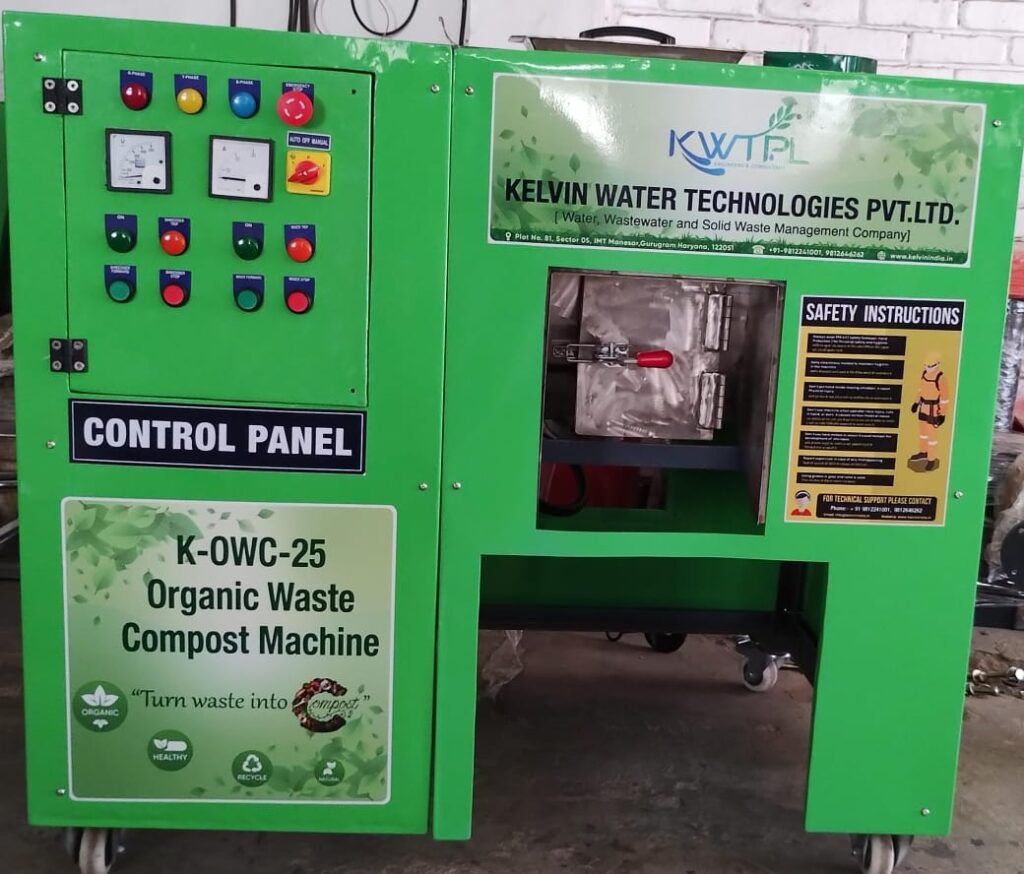Organic Waste Composting Machines

Organic waste composting machines are innovative solutions to one of the most pressing environmental challenges of our time: managing organic waste sustainably. In this comprehensive exploration, we will delve into what these machines are, how they work, their benefits, and their role in promoting a more environmentally friendly approach to waste management.
Organic Waste Composting Machines
An organic waste composting machine is a mechanical device designed to accelerate the natural decomposition of organic materials. These materials include food scraps, yard waste, agricultural residues, and other biodegradable substances. The primary purpose of composting machines is to transform these organic wastes into nutrient-rich compost, which can be used as a soil amendment to improve soil health and fertility.
Working Principles
Organic waste composting machines operate on the principles of aerobic decomposition, where microorganisms such as bacteria, fungi, and actinomycetes break down organic matter in the presence of oxygen. The composting process involves several key factors:
- Temperature Control: Composting machines often regulate temperatures to optimize microbial activity. Higher temperatures promote faster decomposition and pathogen elimination.
- Moisture Management: Maintaining the right moisture level is crucial for microbial activity. Composting machines may include systems for moisture control to ensure optimal conditions.
- Aeration: An adequate oxygen supply is necessary for aerobic composting. Composting machines facilitate aeration through mechanical agitation, turning, or forced air systems.
- Particle Size Reduction: Shredding or grinding organic waste into smaller particles increases surface area and accelerates decomposition.
- Mixing and homogenization: uniform mixing of organic materials ensures consistent compost quality and decomposition rates.
Types of Organic Waste Composting Machines
- Household Composters: small-scale composting machines designed for home use. These may include countertop composters, tumblers, or in-ground composting systems.
- Community composters are intermediate-scale machines suitable for neighbourhoods, schools, or small businesses. These may include rotary drum composters, vermicomposting systems, or static pile composters.
- Industrial composters are large-scale machines used by municipalities, farms, and industrial facilities. These include in-vessel composters, windrow composters, and bioreactors.
Benefits of Organic Waste Composting Machines
1. Environmental Sustainability
Composting organic waste reduces the burden on landfills and incinerators, which helps mitigate greenhouse gas emissions and minimizes environmental pollution. By recycling organic matter into compost, composting machines contribute to a circular economy and promote resource conservation.
2. Soil Health and Fertility
Compost produced by composting machines is a valuable soil amendment rich in organic matter, nutrients, and beneficial microorganisms. When added to soil, compost improves soil structure, enhances water retention, promotes nutrient cycling, and supports healthy plant growth. Compost also reduces the need for chemical fertilizers and pesticides, further benefiting ecosystems and human health.
3. Waste Reduction and Diversion
Composting machines facilitate the diversion of organic waste from landfills, where it would otherwise contribute to methane emissions and leachate contamination. By converting organic waste into compost, these machines help communities achieve waste reduction goals, comply with waste management regulations, and promote sustainable waste practices.
4. Cost Savings
In the long term, investing in organic waste composting machines can lead to cost savings for municipalities, businesses, and individuals. Reduced landfill tipping fees, lower waste disposal costs, and potential revenue from selling compost or energy generated from composting processes contribute to economic benefits.
5. Community Engagement and Education
Implementing composting machines at the community level fosters environmental awareness, encourages sustainable behaviour, and promotes a sense of ownership and responsibility among residents. Educational programs and outreach initiatives associated with composting can empower individuals to make environmentally conscious choices and participate actively in waste management efforts.
Why use an Organic Waste Composting Machine?
- Organic waste composting machines help reduce the amount of organic waste sent to landfills, mitigating greenhouse gas emissions.
- It produces nutrient-rich compost, which can be used to improve soil health, enhance fertility.
- It conserves valuable resources such as water, energy, and landfill space, contributing to a more sustainable approach to waste management.
- Composting machines help prevent the production of methane, a potent greenhouse gas, in landfills.
- It can lead to cost savings over time, including reduced waste disposal fees, potential revenue from selling compost products.
- Promotes a sense of responsibility toward waste reduction and recycling.
- Composting machine offer an efficient and hygienic way to manage organic waste and optimize waste decomposition rates.
- Composting organic waste supports the principles of a circular economy by closing the nutrient cycle, returning organic matter to the soil.
- Embracing organic waste composting machine aligns with long-term sustainability goals, including reducing reliance on finite resources, promoting ecosystem resilience.
Conclusion
Organic waste composting machines play a pivotal role in addressing global challenges related to waste management, environmental sustainability, and resource conservation. By harnessing the natural process of composting, these machines transform organic waste into a valuable resource, promote soil health, reduce greenhouse gas emissions, and engage communities in sustainable practices. As technologies advance, regulatory frameworks evolve, and societal attitudes shift toward sustainability, organic waste composting machines are poised to become integral components of waste management systems worldwide, contributing to a greener, healthier planet for future generations.